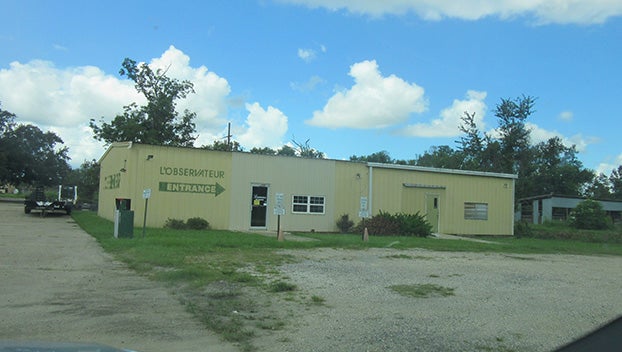St. John Council Oks equal pay
Published 12:00 am Monday, November 15, 1999
ERIK SANZENBACH / L’Observateur / November 15, 1999
EDGARD – In a remarkably peaceful and fast-paced meeting, the St. JohnParish council passed a new equalization policy for parish employees, accepted a bid for construction on the new drivers license office on Airline Highway and promised to look into a request by Marathon/Ashland to reduced the amount of area they use as a refinery.
The meeting, held at the Edgard courthouse, started off with 40th Judicial District Judge Madeline Jasmine swearing in Virgie Jarrow Johnson as the new Justice of the Peace in District 1. Johnson was elected Oct. 23.Councilman Dale Wolfe finally saw the fruition of 15 years’ hard work, as the council adopted a new equalization plan for the pay scale of parish employees.
The new pay plan, which was hammered out in the Finance Committee and with several recommendations from state Civil Service, gives parish employees a level playing field when it comes to wages and raises.
Wolfe said that before the implementation of the new guidelines, there was no real fairness to the system.
“Pay was based on who you knew and who you were,” said Wolfe, “It just wasn’t fair to the employees. There were people who were making lessmoney than others doing the same work.”Councilman Perry Bailey, who helped Wolfe get the equalization plan passed, added, “This is equal pay for equal work and eliminates new employees from getting higher pay than people who have been working for the parish for years.”The new plan puts parish employees into 10 different grades ranging from janitor all the way to managers and engineers. Within each of these gradesis a six-step ascending ladder of hourly wages. An employee gets a raiseto the next step by merit, years worked or mediation. The newequalization plan also set up a grievance process for employees if they are unhappy with their wages.
Despite the new plan, Wolfe still isn’t happy with it and wants to do some fine-tuning.
“There are some employees who have been working 18 to 20 years and they are still getting the shaft,” Wolfe said, “but at least this is a start, and we are making sure everybody is being treated fairly.”Councilman Renny Wilson also moved that the equalization plan be put on the ballot in the next election for approval by the voters.
“If it becomes a charter amendment,” said Wilson, “that way nobody came come back in several years and try and change people’s wages.”The council passed the motion unanimously, 8-0. Councilman Joel McTopywas absent from the meeting. The amendment will appear on the nextelection ballot.
Wolfe was congratulated and commended by the council for his hard work on the issue.
The drivers license office is one step closer to reality. The councilaccepted the architect’s recommendation and went with the bid of $220,260 from J. A. Jack Julius Inc. to build the office on the AirlineHighway.
In an issue that will continue at the next council meeting, the attorney for Marathon/Ashland refinery has requested that their boundary lines be changed, in effect making the industrial area a bit smaller.
According to attorney Sammy Accardo Jr., Marathon/Ashland has acquiredproperty in recent years that are not really part of their industrial or enterprise zoning area. Such property as their recreation hall, and otherproperty used as a buffer zone between the refinery and Reserve residents are not really being used as an industrial area. Accardo said thatMarathon/Ashland wants the boundaries to these areas taken out of the industrial zone.
He also said the purpose of this would insure that places like the San Francisco Plantation would not be touched.
The council wanted to see more on the boundaries and requested that Accardo bring maps and a clearer description of the area affected to the next meeting.
Councilman Kevin Duhon says that this plan will also keep a buffer zone between the refinery and residents. He said he would like to take one morestep and get San Francisco Plantation declared a historical zone, ensuring that industry will not be able to develop anywhere near the plantation.
Return To News Stories




